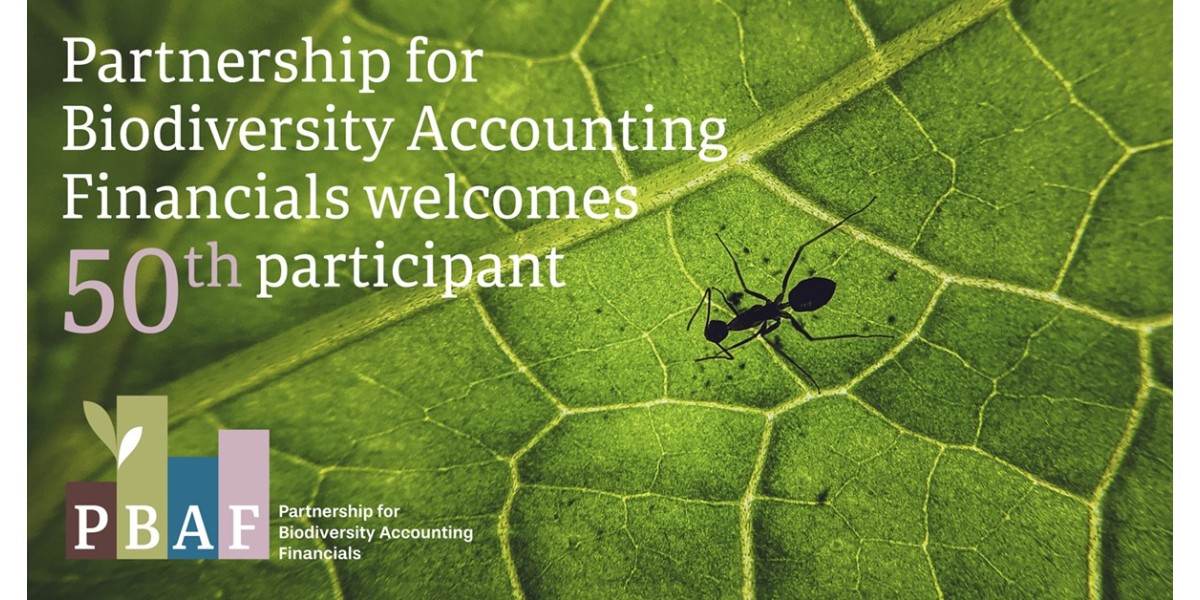
The Hague, March 14, 2023 - The Partnership for Biodiversity Accounting
Financials (PBAF) was established in 2019 by six financial institutions,
including ASN Bank. Its goal: to ensure that every bank, portfolio manager and
pension fund measures its impacts and dependencies on nature and contributes to
nature conservation and restoration. This month, the foundation welcomed its 50th participant: BMO Financial
Group, a North American bank headquartered in Canada. A great milestone for the
international partnership.
“In 2022, we again observed a growing awareness in the financial sector for biodiversity loss”, explains Roel Nozeman, biodiversity expert at ASN Bank and programme director of PBAF. “Boards increasingly recognise the importance of investing in nature conservation and nature restoration, in part fuelled by the successful COP15 in Montreal.”
Global network
In the run-up to and following the biodiversity summit, 11 financial
institutions joined the partnership, including pension funds and banks from
Ireland, Iceland, South Korea, Denmark and Canada. As a result, PBAF now has 50 participants from 15
countries.
Nozeman: “We actively engage with financial institutions, public authorities and other organisations committed to biodiversity and give presentations about what PBAF aims to achieve – and why. These efforts, together with the support of our partners and IKEA Foundation, have strengthened PBAF’s position in the international financial playing field. We look forward to entering the next stage with this group, expanding our international network even further and fine‑tuning our approach. Moreover, we want to embed the PBAF Standard in the ‘TNFD framework’, the international approach currently being developed by the TNFD for nature‑related financial disclosures.”
A standard for biodiversity footprint measurement
PBAF is building a harmonised approach for financial institutions to measure the impact of loans and investments on biodiversity and the dependence on ecosystem services. Examples include equities, project loans and green bonds. This will enable every bank, asset manager and pension fund to manage their impacts and dependencies and contribute to biodiversity conservation and restoration.
In various working groups, PBAF partners share their experiences and discuss how impacts and dependencies should ideally be measured.
In 2022, the partnership presented the second version of the ‘PBAF Standard’. It defines the
conditions to be met by data and measurement approaches in order to provide
proper insight into biodiversity impacts and dependencies. One example is the
inclusion of the main drivers of biodiversity loss in methodologies used and
transparency of assumptions in footprint calculations.
In addition, the standard provides practical explanations of the impact
assessment approaches and tools available. Like the use of footprinting
methodologies, the use of satellite imaging to map deforestation and the
detection of animal species through DNA traces in rivers.
More information
Follow
PBAF’s progress on LinkedIn
Michael Torrance, Chief Sustainability Officer at BMO Financial Group:
“We are keen to work with the Partnership for Biodiversity Accounting Financials, to learn from their work developing methodologies to assess biodiversity impacts. With increasing focus on biodiversity impact measurement, the Global Biodiversity Framework emerging from COP15 and the place of biodiversity in future frameworks like the ISSB, BMO is focused on evolving our approach to biodiversity, building on the work we’ve done to date to better integrate climate considerations into our business, including through the use of geospatial analysis. Biodiversity is a highly complex topic that will require a sophisticated approach from the financial sector, and we want to lean into the challenge.”